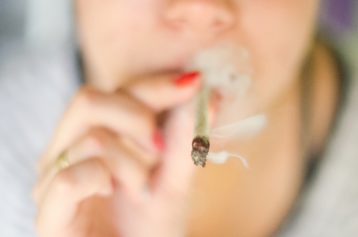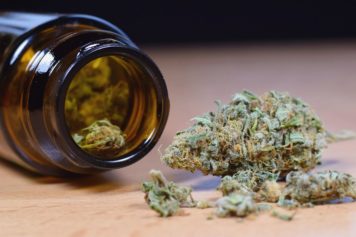Key advocates of the decriminalization of ganja are set to launch a cannabis growers’ association in Jamaica, as momentum builds towards establishment of a formal marijuana industry on the island.
Encouraged by legalization of marijuana in Colorado and Washington states in the U.S., and in Uruguay in South America, the Jamaicans foresee the development of a local, regional and international cannabis industry, led by a Cannabis Future Growers and Producers Association, that will eventually generate billions of dollars for the Jamaican economy.
The growers’ and producers’ association will be launched on Jan. 18, as one outcome of a major stakeholders forum, “Going Forward — Legalize it,” which organizers hope will bring together the disparate entities planning a future in ganja at the University of the West Indies in Mona, St Andrew.
“We have invited representatives of the various organizations to come together at the forum to take their ideas forward,” Paul Burke, a spokesman for the forum organizers confirmed yesterday. “The launch of the Cannabis Future Growers and Producers Association is expected to be one of the outcomes of the forum.”
The stakeholders forum is being organized by the tripartite Ganja Law Reform Coalition, the Cannabis Commercial and Medicinal Research Task Force, and the National Alliance for the Legalization of Ganja. Among the invitees are the Jamaica Agricultural Society; the State-run Scientific Research Council (SRC); the University of the West Indies; the University of Technology, Jamaica; micro, small and medium-sized enterprises; parliamentarians; other representatives of the political parties and their youth offshoots; artistes, and other advocates of legalization.
One important position already taken by advocates is that Jamaica should maintain ownership of no less than 55 per cent of all licensed cannabis industry establishments and investments. They are also advocating stricter enforcement and penalties for the illegal exportation of ganja.
Formation of a ganja planters grouping anticipates the decriminalization of ganja, which is now being widely taken as a done deal, with both sides of the parliamentary fence sharing rare agreement on a major issue.
It would be a historic landmark on a long and tortuous road that led to adoption of a much-debated report by the government-sanctioned National Commission on Ganja in August 2001.
In brief, the commission, headed by the late Barry Chevannes, recommended: “the decriminalization of ganja for personal, private use by adults, and for use as a sacrament for religious purposes.”
The commission also said that, after reviewing the most up-to-date body of medical and scientific research, it is “of the view that whatever health hazards the substance poses to the individual — and there is no doubt that ganja can have harmful effects — these do not warrant the criminalization of thousands of Jamaicans for using it in ways and with beliefs that are deeply rooted in the culture of the people. Besides, there is growing evidence that the substance does have therapeutic properties.”
Phillip Paulwell, the minister of science, technology, energy, and mining and the most high-profile personality in the Portia Simpson Miller Administration to publicly endorse the ganja thrust, said recently that “Jamaica will not be left behind” as interest and movements in ganja law reform, research and development grows rapidly. He disclosed that he had already directed the SRC, the government’s premier science body, to lead the efforts of stakeholders in medical ganja matters.
Paulwell spoke at the official launch of the book, Cannabis, Marijuana, Ganja: The Jamaican and Global Connection, jointly authored by Drs. Henry Lowe and Errol Morrison, outlining the attributes and potential of ganja. Lowe is somewhat ahead of the game, having recently established Jamaica’s first medical ganja company called Medicanja.
A position paper developed by the Cannabis Commercial and Medicinal Research Task Force, led by Delano Seiveright, outlined the many products and business opportunities that could be developed from a cannabis industry, including food; personal care; wellness; beauty; clothing; travel and leisure; spirituality; construction-paper fibres; seed oils; essential oils; seed nut; leaf; whole-plant; charcoal, environmental-soil rehabilitation; spas, restaurants, coffee houses, shops, guest houses and clinics.
The forum, which runs from 10:00 am to 4:00 pm, will examine a range of issues touching on legalization of ganja and will weigh the options in light of global developments. Its decisions will be published in a communique and position paper.
Source: jamaicaobserver.com


